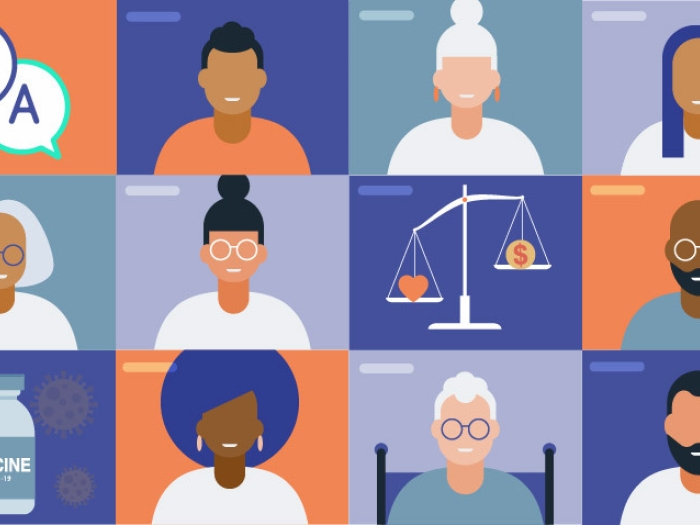New grant allows for improved training of community health workers to engage minority populations in research where they are often underrepresented and health disparities exist.
1:53 PM
Author |

Community health workers are an important resource for providing basic health care needs for the community, as well as helping facilitate clinical research.
"We know that community health workers are increasingly involved in research to engage individuals from underserved communities, and they make important contributions to the success of research in their community because they understand the socio-economic and cultural factors that influence it," says Susan Murphy, ScD, OTR/L, an associate professor of physical medicine and rehabilitation at Michigan Medicine and research health science specialist at the Veterans Affairs Ann Arbor Healthcare System's Geriatric Research Education and Clinical Center.
"We absolutely need their partnership and assistance to engage underserved communities in research, but we have also found that training for community health workers in research best practices varies," she says.
Murphy, along with Linda B. Cottler, Ph.D., MPH, FACE, of the University of Florida, and Sergio Aguilar-Gaxiola, M.D., Ph.D., of the University of California, are the principal investigators of a newly funded $2.3 million grant from the National Institutes of Health's National Center for Advancing Translational Sciences that will help train and empower community health workers in research best practices.
"There are no national competencies for research best practices for community health workers," says Murphy, who also works as a faculty lead in the Education and Mentoring Group at the Michigan Institute for Clinical and Health Research (MICHR). Previously at MICHR, she led development of an online competency-based training in research best practices in social and behavioral research for clinical research professionals.
"This grant will allow us to enable community health workers to better support research within their community," she says. "This is especially important in underserved communities where quality and translation of clinical research are hampered due to health disparities."
Aguilar-Gaxiola, director of the University of California Davis Center for Reducing Health Disparities, adds, "The work of our team is also timely in that we hope to address the challenges and health disparities underserved communities are experiencing during the COVID-19 pandemic."
Addressing health disparities in research
The three principal investigators say the grant will address four main issues:
-
Provide a standardized education in research best practices for community health workers.
-
Develop training for community health workers and promotoras (Spanish-speaking community health workers) that is relevant to their community's culture and language(s).
-
Reduce barriers to accessibility of competency-based training and tools for training community health workers online.
-
Empower select community health workers to become "champions" of the training to serve as peer mentors and facilitate the training of their colleagues at the community sites where they work.
"We believe this project will help to build an effective, community-engaged clinical research workforce and enhance research quality," Murphy says. "Which is a shift in the paradigm of training focused solely on clinical research professionals."
The University of Michigan serves as the contact institution for the grant and each primary investigator represents a different NIH Clinical Translational Science Award (CTSA)-funded center, with U-M's being MICHR.
We believe this project will help to build an effective, community-engaged clinical research workforce and enhance research quality.Susan Murphy, ScD, OTR/L
The grant will also establish a national network of CTSA Community Advisory Boards, which will be a major dissemination pipeline for the training across CTSA-funded institutions nationwide.
The three investigators' institutions will serve as the first training hubs for the program.
"The hubs are representative of a diverse group of community partners and each hub has established partnerships in community settings that serves the Black and Latinx communities, and other racial/ethnic populations," Murphy says.
In addition, community health workers and community members will be engaged in content generation, as well as providing feedback on how the training and its implementation is being received.
"Community health workers understand the needs of their community and are an incredibly valuable resource, especially when it comes to engaging their community members in research that could help us reduce health disparities in the future," says Cottler, a dean's professor of epidemiology and director of community engagement of the University of Florida Clinical and Translational Science Institute.
Grant: Training Promotoras/Community Health Workers using Culturally and Linguistically-Appropriate Research Best Practices. Funded by the NIH National Center for Advancing Translational Sciences. Award U01TR003409.

Explore a variety of healthcare news & stories by visiting the Health Lab home page for more articles.

Department of Communication at Michigan Medicine
Want top health & research news weekly? Sign up for Health Lab’s newsletters today!





